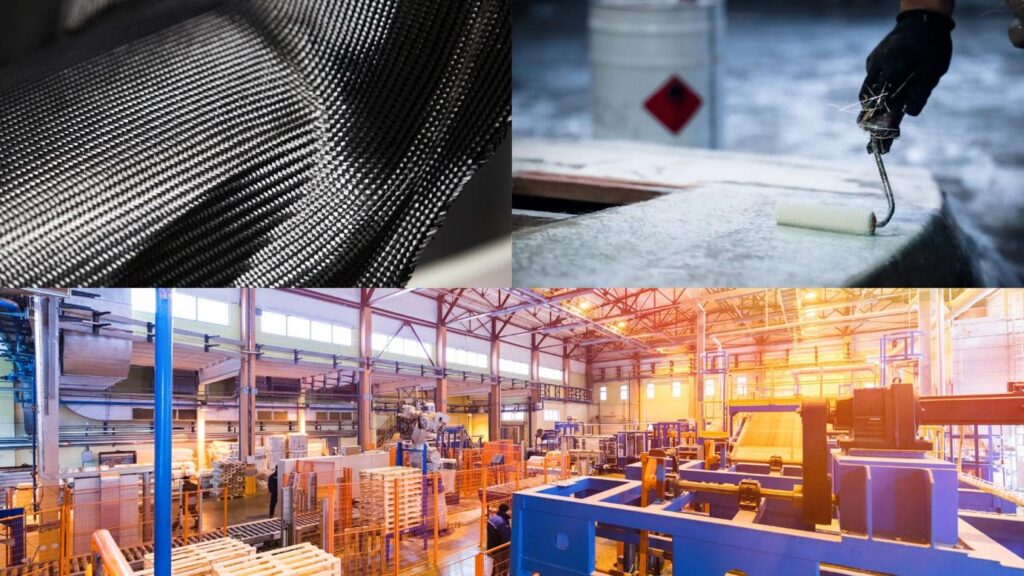
Revolutionise Your Business with Composites
In today’s competitive business landscape, companies are constantly seeking innovative ways to gain a competitive edge. One such method is to revolutionise your business with the power of composites. Composites, often referred to as composite materials, are engineered materials made from two or more constituent materials with significantly different physical or chemical properties. These materials, when combined, create a product that surpasses the individual properties of its components. In this article, we will explore how composites can transform your business and propel it to new heights.
The Advantages of Composites
Composites offer a myriad of advantages that make them an ideal choice for businesses across various industries. Let’s delve into some of these advantages:
- Strength and Durability: Composites possess exceptional strength-to-weight ratios, making them incredibly strong yet lightweight. This characteristic makes them suitable for applications where strength and durability are crucial, such as aerospace, automotive, and construction industries.
- Design Flexibility: The versatility of composites allows businesses to achieve intricate and complex designs that would be challenging or impossible with traditional materials. The ability to mold and shape composites into various forms empowers businesses to create innovative and aesthetically pleasing products.
- Corrosion Resistance: Unlike many conventional materials, composites are highly resistant to corrosion and degradation caused by environmental factors such as moisture, chemicals, and temperature variations. This property translates into extended product lifecycles and reduced maintenance costs for businesses.
- Enhanced Performance: Composites can be tailored to exhibit specific properties, such as high electrical conductivity, thermal insulation, or fire resistance. By selecting the appropriate composite materials, businesses can optimise the performance of their products and meet the unique requirements of their customers.
- Cost Efficiency: Although composites may have higher upfront costs compared to some traditional materials, they can offer substantial long-term savings. The lightweight nature of composites reduces transportation costs, and their durability minimises replacement and maintenance expenses.
- Environmental Sustainability: Composites are increasingly recognised for their eco-friendly characteristics. Their lightweight nature contributes to energy conservation, while their extended lifespan reduces waste generation. Furthermore, the recyclability of some composite materials aligns with the principles of a circular economy.
Applications of Composites
The applications of composites span a wide range of industries, and their versatility enables businesses to unlock new opportunities. Here are some notable applications of composites:
Automotive Industry
In the automotive industry, composites are revolutionising the design and manufacturing of vehicles. By utilising composites, car manufacturers can reduce weight, improve fuel efficiency, and enhance safety. Components such as body panels, chassis, and interior parts can all benefit from the superior properties of composites.
Aerospace Sector
The aerospace sector demands materials that are lightweight, strong, and capable of withstanding extreme conditions. Composites, with their exceptional strength and resistance to fatigue, have become indispensable in the production of aircraft components. From fuselages and wings to interior structures, composites are reshaping the aerospace industry.
Construction Sector
The construction sector is embracing composites for their remarkable strength, durability, and design flexibility. Composite materials find applications in bridges, facades, roofing, and reinforcement of concrete structures. They offer reduced maintenance costs, improved energy efficiency, and enhanced architectural possibilities.
Renewable Energy
Renewable energy sources such as wind and solar power require durable and lightweight components. Composites provide an ideal solution for manufacturing wind turbine blades, solar panels, and other renewable energy infrastructure. Their high strength and resistance to environmental factors make them well-suited for such demanding applications.
Sports and Recreation
In the sports and recreation industry, composites have revolutionised equipment design and performance. From tennis rackets and golf clubs to bicycles and helmets, composites offer enhanced strength, flexibility, and impact resistance. Athletes and enthusiasts alike benefit from the superior capabilities of composite materials.
Marine Industry
The marine industry, including boat and yacht manufacturing, has also embraced composites. Composites offer advantages such as improved fuel efficiency, resistance to corrosion, and enhanced durability in harsh marine environments. From hulls and decks to masts and interior components, composites are changing the landscape of maritime engineering.
Frequently Asked Questions (FAQs)
1. How can composites benefit my business? Composites can benefit your business in several ways. They offer superior strength, design flexibility, corrosion resistance, and enhanced performance. Additionally, composites can lead to cost efficiency, environmental sustainability, and open up new opportunities in various industries.
2. Are composites expensive to use in manufacturing? While composites may have higher upfront costs compared to some traditional materials, they can provide long-term cost savings. Their lightweight nature reduces transportation costs, and their durability minimises replacement and maintenance expenses.
3. Can composites be customised for specific applications? Absolutely! Composites can be tailored to exhibit specific properties based on the desired application. Whether you require high electrical conductivity, thermal insulation, or fire resistance, composite materials can be engineered to meet your specific needs.
4. Are composites environmentally friendly? Composites have several eco-friendly characteristics. Their lightweight nature contributes to energy conservation, and their extended lifespan reduces waste generation. Some composite materials are also recyclable, aligning with the principles of a circular economy.
5. Which industries can benefit from using composites? Composites find applications in a wide range of industries. Automotive, aerospace, construction, renewable energy, sports and recreation, and marine industries are just a few examples where composites are revolutionising traditional practices.
6. How can I incorporate composites into my business? To incorporate composites into your business, start by identifying areas where composites can provide a competitive advantage. Conduct research on composite materials suitable for your specific application and consider collaborating with experts or manufacturers experienced in composites.
Composites have the potential to revolutionise your business across various industries. With their exceptional strength, design flexibility, and resistance to corrosion, composites offer a competitive edge that can propel your business to new heights. By embracing the power of composites, you can unlock innovative product possibilities, reduce costs, and contribute to a more sustainable future. Don’t miss out on the opportunities that composites can bring to your business—embrace the power of composites today.









